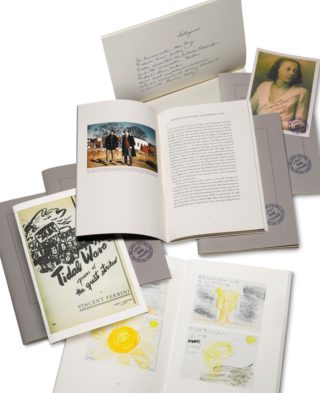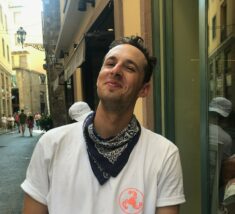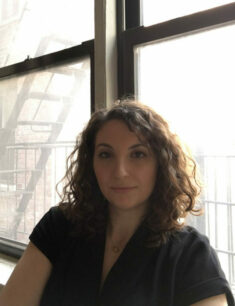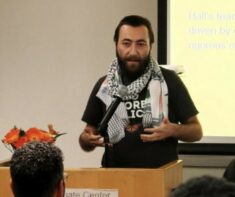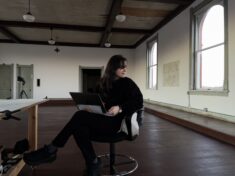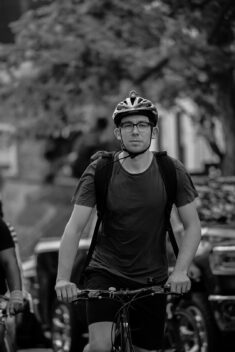Each year, Lost & Found: The CUNY Poetics Document Initiative offers Archival Research Fellowships and Grants to CUNY Graduate Center doctoral students conducting archival research on writers, artists, and musicians whose contributions to New American Poetry remain understudied. This year, thanks to generous support from the Early Research Initiative at the CUNY Graduate Center, 10 students have received financial and logistical support as they traveled to archives here and abroad, both personal and institutional, developing their innovative research. This archival research is how Lost & Found seeds new publications and programming, so look forward to the flowers of these projects which may take any number of final forms—dissertations, conferences, digital publications, Lost & Found chapbooks, or full-length books published in collaboration with a larger press as part of our Lost & Found Elsewhere series.
The 2022 Archival Research Grants and Fellowship have been awarded to the following CUNY Graduate Center students: Vanessa S. Troiano, Katherine Payne, Natasha Tiniacos, Emine Busra Unluonen, John Rufo, Jeff Voss, Janelle Poe, Lucien Baskin, Joseph Caceres, and Sam O’Hana.
Read below about their archival research projects which range from writers and subjects such as Susan Weil’s poemumbles, Richard Pryor's comedic archives, Miguel Algarín & Lois Griffin of the Nuyorican Cafe archives, Ed Sanders's glyphs, Gloria Evangelina Anzaldúa's poetry, Stuart Hall & the Birmingham School's Approaches to Popular Pedagogy, Amiri Baraka's relationship to German, Existentialist Philosophy, the life and poetry of Murat Nemet-Nejat, Black Star Lyrics Are Archive, and David Jones's PTSD in interview Reels, “Chart of Sources for Arthurian Legends."
CUNY Lost & Found Fellow: Vanessa S. Troiano (Art History, CUNY GC)
Archival Research Project: The Art and Poetry of Susan Weil’s Poemumbles
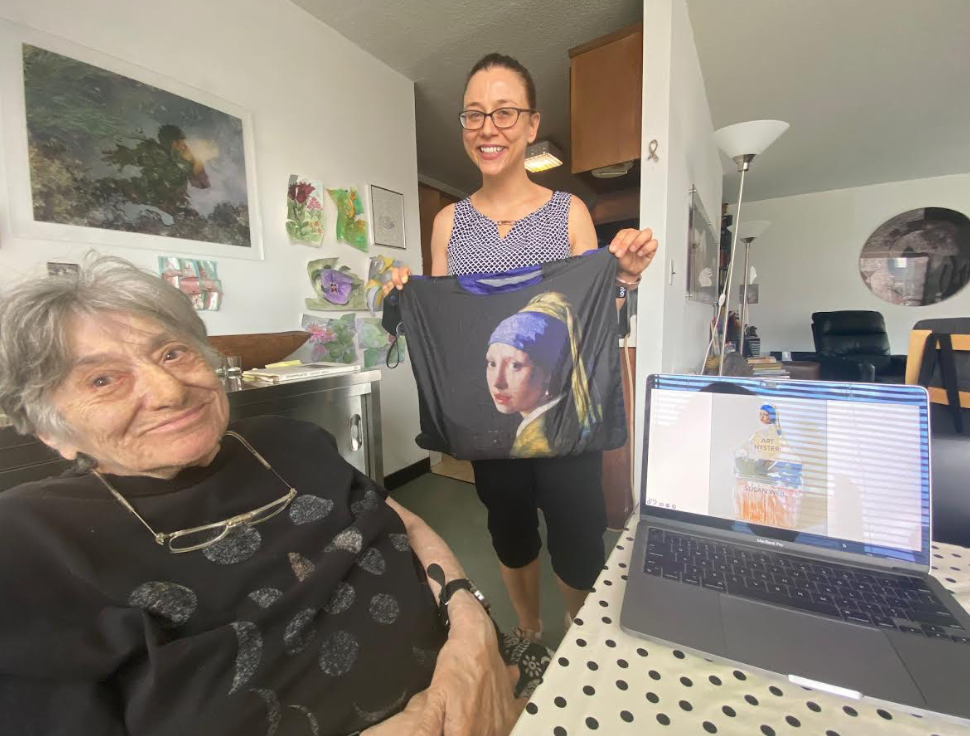
Project description: American painter/poet Susan Weil (b. 1930) came of age among a generation of postwar artists reviving avant-garde techniques. She began her extraordinary life-long visual and linguistic approach to artmaking as a student at Black Mountain College in the late 1940s. Despite her achievements, Weil’s art and poetry remain largely unknown, an ongoing problem for women artists that art historian Vanessa S. Troiano endeavors to rectify. Forming part of her forthcoming doctoral dissertation, “Susan Weil: Artistic Trailblazer,” Troiano’s archival research project documents Weil’s nearly 40-year production of daily poemumbles. A portmanteau of poem and mumble, Weil’s self-coined term describes the unique image-poems she has created almost every day since 1984. Weil’s poemumbles—over 12,000 and counting—unify fine art and poetry in compositions that transcend the communicative boundaries of their distinct forms. By engaging in feminist approaches to revisionist history, Troiano seeks to inscribe Weil’s pioneering forms of creative expression into the history of American modern and contemporary art. For more about this project, read "The Art and Poetry of Susan Weil’s Poemumbles" on our blog Distributaries.
~~~~~~~~~~~~~~~~~~~~~~~~~~~~~
CUNY Lost & Found Fellow: Joseph Cáceres (English, GC)
Archival Research Project: Nuyorican Poets Cafe Founders Archive Project: Lois Elaine Griffith & Miguel Algarín
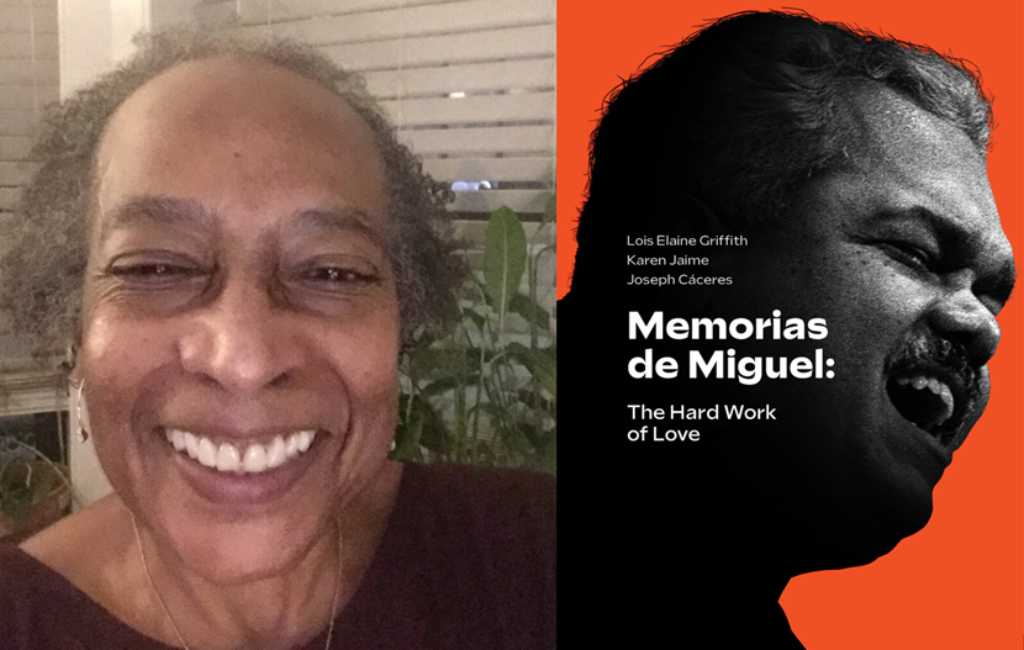
Project description: This project stems from Joseph Cáceres' work with the Nuyorican Poets Cafe Founders Archive
Project (in conjunction with Lost & Found). For almost two years, Joseph Cáceres has helped the last surviving founder of the Nuyorican Poets Cafe, Lois Elaine Griffith, curate oral histories, poetry, essays, artwork, and remembrances for an anthology
published in October 2022 by NYU's Hemispheric Institute honoring the life and work of the Cafe founder, Miguel Algarín. Through this work, an unpublished manuscript by Algarín was discovered that Cáceres will authenticate and edit.
~~~~~~~~~~~~~~~~~~~~~~~~~~~~~
CUNY Lost & Found Fellow: Lucien Baskin (Urban Education, CUNY GC)
Archival Research Project: The Educational Writings of Stuart Hall
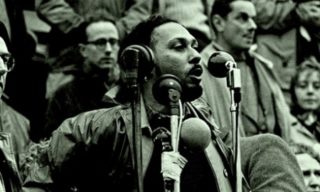
Project description: This project dives into the pedagogical materials and educational writings of the late cultural studies scholar Stuart Hall. Hall moved across institutional spaces throughout his life, from his time as a student organizer in the New Left at Oxford and his work as a literacy teacher in adult education programs to his time as an administrator at the Centre for Contemporary Cultural Studies and the Open University and a critic of Thatcherite education reforms. By curating a collection of his pedagogical and educational writings and materials, this project by Lucien Baskin seeks to add to the accessibility of his body of work while highlighting that for Hall the pedagogical was always political and the political was always pedagogical.
~~~~~~~~~~~~~~~~~~~~~~~~~~~~~
CUNY Lost & Found Fellow: Natasha Tiniacos (Latin American, Iberian and Latino Cultures, CUNY GC)
Archival Research Project: The Poetry of Gloria Evangelina Anzaldúa
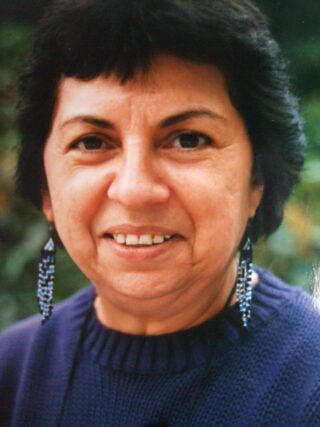
Project description: For this Lost and Found archival research project, Natasha Tiniacos will travel to the Nettie Bee Benson Latin American Collection, in University of Texas at Austin, which is home to the Gloria Evangelina Anzaldúa Papers. Tiniacos will conduct archival research to unearth and develop a publication around the lesser-known poetry manuscripts by the feminist theorist and author of Borderlands/La frontera. Tiniacos will also explore documents related to Anzaldúa’s health, aiming to contribute to the current discussion on embodiment, illness, and literature.
~~~~~~~~~~~~~~~~~~~~~~~~~~~~~
CUNY Lost & Found Fellow: Jeff Voss (English, CUNY GC)
Archival Research Project: Richard Pryor: Geographer of the Carceral Landscape of America
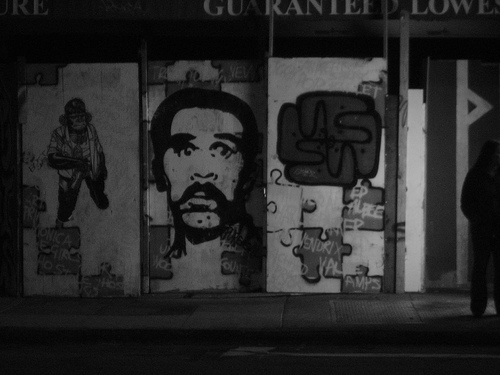
Project description: For seven months between 1971-1972, Richard Pryor lived in Berkeley. Amidst a combustive social atmosphere charged with the contradictions and possibilities of personal freedom and collective struggle, lurked the pervasive threat of unfreedom. In the wake of the brutal suppression of the Attica uprisings over two thousand miles away, Pryor butted up against edges in himself he’d perhaps never previously felt: a time and space when he found it “really hard to be funny.” This project asks, what if we were to take Richard Pryor seriously as an intellectual, theorist, sociologist, legal scholar, but perhaps especially, as a geographer of the carceral landscape of America? What confluences and diffractions did the East Bay stir up in him to cause Pryor to respond to Attica with such a forceful combination of mockery, militancy, and mourning?
~~~~~~~~~~~~~~~~~~~~~~~~~~~~~
CUNY Lost & Found Fellow: Katherine Payne (Comparative Literature, CUNY GC)
Archival Research Project: AREAS OF DARKNESS: Ed Sanders’s Case Files as Part of His Investigative Poetry Practice
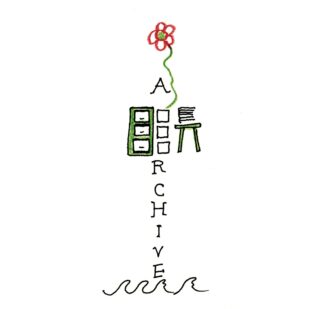
Project description: In 1975 Ed Sanders, poet, musician, activist, and public figure delivered a lecture at The Naropa Institute. This lecture would later become Investigative Poetry, which is part poem and part manifesto about the potential of poetry to take on the subject matter of history. In Investigative Poetry, Sanders also lays out his vision of the poet as an investigative journalist or private investigator who opens “case files” on “anything or anybody.” This is the creation of a poet’s personal archive. Sanders’s own archive is housed on his property in Woodstock, NY where Katherine Payne will conduct archival research to explore these guiding questions for the project:
What is the relationship between Sanders’s various identities as poet, musician, activist, bookstore owner, and public figure?
What is the role of the archive in an investigative poet’s work? What does that look like in practice and how does it influence their work? By extension, what can poets today learn from Sanders’s investigative practice?
What other areas of research do Sanders’s case files open up for scholars and future poets?
~~~~~~~~~~~~~~~~~~~~~~~~~~~~~
CUNY Lost & Found Fellow: John Rufo (English, CUNY GC)
Archival Research Project: C. L. R. James and Amiri Baraka Explode Aufheben
Project description: As
20th century Black radicals critically engaging with Marx, C. L. R.
James and Amiri Baraka both stressed a connection between their writing
and the philosophy of Hegel. In his Notes on Dialectics, James centers a communal reading of The Science of Logic;
in "Hegel," an early 60s poem, Baraka insists: "Either I am wrong / or
he is wrong. All right / I am wrong, but give me someone / to talk to."
This archival research project by John Rufo, entitled "James and Baraka Explode Aufheben,"
re-reads both James and Baraka's Hegelian entanglements to understand
their use, revision, and stretch of Hegel's "Aufheben," translated here
as "abolition." How might seeking out James and Baraka's archival
rewritings prove useful for abolition today?
~~~~~~~~~~~~~~~~~~~~~~~~~~~~~
CUNY Lost & Found Fellow: Emine Busra Unluonen (Anthropology, CUNY GC)
Archival Research Project: Murat Nemet-Nejat and Accented Writing
Project description: This project by Emine Bursa Unluonen explores the poetics and the life story of a Turkish-American poet, essayist, and translator, Murat Nemet-Nejat (1959 -), and to document and write about a liberatory aspects of acknowledging and utilizing an accenting writing in English.
~~~~~~~~~~~~~~~~~~~~~~~~~~~~~
CUNY Lost & Found Fellow: Janelle Poe (English, CUNY GC)
Archival Research Project: “Brown Skin Lady”: Black Star Lyrics Are Archive
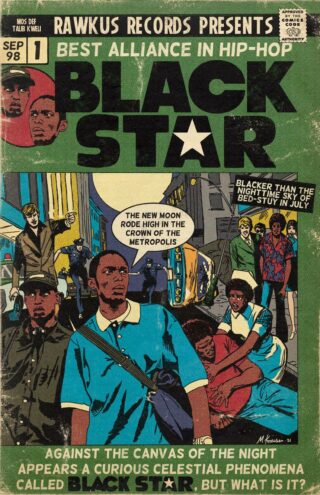
Project description: Released on September 29, 1998, Mos Def & Talib Kweli Are Black Star was a revolutionary hip hop album from a Brooklyn-based duo that literally changed the game and introduced the wider public to two of the art form’s most powerful and prolific emcees. Closely intertwined New York’s spoken word scene booming at Nuyorican Poets and Brooklyn Moon cafes, these BK intellectuals were steeped in the black rhetoric tradition of activists and artists like Marcus Garvey, W.E.B. Du Bois, Langston Hughes, Amiri Baraka, Sonia Sanchez, Toni Morrison, John Coltrane, Weldon Irvine and Gregory Isaacs, representing NYC and diasporic roots.
On an album intended to redefine the terms and limits of hip hop emceeing, duos, blackness
and masculinity, “Brown Skin Lady” stands out as one of the most romantic, empowering songs
dedicated to Black women in the history of the form. In addition to its effluent praise of what
today is termed “Black Girl Magic” and “natural” Black women, the song’s geographic focus on
the African Street Festival, later renamed the International African Arts Festival, the song marks
a specific point in pre-gentrified, downtown BK, and represents the local struggle to claim land
and ritual, and also represents an unabashed love of Afrocentric, diasporic culture,
This project by Janelle Poe will allow for study of the song’s poetic lyrics and recording as an archive and index, that will also highlight the need for further study and expansion of archival collections dedicated to hip hop and lyricism. This research will be useful in creating a dynamic multimedia, digital publication that may include audio recordings, archival images, interactive maps, and if at all possible, an image of the original lyrics as hand written text, or related sketches.
~~~~~~~~~~~~~~~~~~~~~~~~~~~~~
CUNY Lost & Found Fellow: Sam O'Hana (English, CUNY GC)
Archival Research Project: David Jones: Documenting The Relationship between PTSD and Creative Work.
Project description: David Jones was the longest serving artist of the First World War and suffered multiple mental health crises during the production of his most significant literary works, In Parenthesis and The Anathemata. This short documentary film uses interviews with scholars to establish a relationship between PTSD and creative work.

